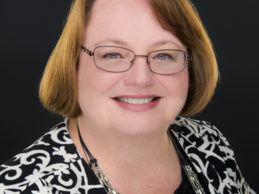Empowered teams, standardized processes, reliable insight, automation, and measurement will improve operations, decrease leakage and improve the patient experience.
High-performance transfer centers are becoming mandatory components for any health system operating in competitive healthcare markets, which are only becoming more competitive and consolidated. That is because high-performance transfer centers help align patients with the right care, in the right location at the right time, which
Read More
Reducing Preventable Medication Errors and Adverse Drug Events
Using a Health Information Exchange (HIE), clinicians across multidisciplinary care teams can access a patient’s medications, reconcile the list and monitor their progress, thereby reducing medication errors and future costs from preventable hospital admissions.
Multiple factors combine to make the prescribing, supplying and taking of medications a perilous and costly issue for patients and the healthcare sector. Prescription medication use is by far the most common health intervention.
Read More
Referential Matching—What It Is and Why It Matters for Providers
Clean patient data is the critical first step for any successful health IT integration, EHR conversion, interoperability initiative or electronic information exchange. According to a recent Pew Charitable Trusts report, most hospital executives and administrators believe the accuracy of patient matching when information is exchanged between organizations with different EHR systems is subpar.
Further, as health systems continue to consolidate and add more data to their networks, the importance of
Read More
3 Use Cases for Artificial Intelligence in Healthcare
Artificial intelligence is bringing about major innovations in healthcare in a number of different ways. While so much regarding artificial intelligence involves the future, but within healthcare, it is not just plans or intentions, but AI is already a concrete reality in the field.
It has all been set in motion by advances in machine learning and fueled by the increasing availability of healthcare data. AI aims to simulate human cognitive functions. It can replace human judgment in
Read More
3 Takeaways From The 2019 HIMSS & Health 2.0 European Conference
The HIMSS & Health 2.0 European Conference attracted over 2,600 delegates from 64 countries to Helsinki in June 2019. While there was a strong focus on healthcare in the Nordics, the conference brought with it a wide variety of vendors from across the globe all looking for new opportunities on the show floor. Our key takeaway – the goal to change mindsets in Europe towards how healthcare can be improved through the use of technology. We look at a few examples below, namely:- Developing
Read More
Why Coworking Spaces Are Essential for Medical Practices
Collaborative work environments remain one of the biggest trends in office space. These coworking spaces have proven to improve the happiness, productiveness, and well-being of employees. However, the use of coworking spaces remains greatly underdeveloped in a medical industry that has seen private practice rates plummet in recent years.
For many physicians, having a private practice is the optimal professional scenario. And yet, private practices are in steep decline. In 2016, less than half of
Read More
3 Ways On-Demand Care Can Improve the Patient Experience
In the increasingly competitive healthcare space, establishing loyalty and improving the patient experience has become a priority for providers. In no area is this truer than the highly competitive, consumer-driven on-demand care space. In fact, a recent survey revealed that patients are five times more likely to select a practice because they’ve had a positive experience there rather than traditional marketing tools, highlighting a key driver of patient loyalty.
Patients are increasingly
Read More
6 Considerations For Creating A Robust Healthcare Data Analytics Program
Healthcare organizations are increasingly turning to data analytics to solve their toughest business challenges. As information becomes less siloed, and technology systems do a better job of both generating and sharing data, organizations are seeing the need to more precisely identify patterns to predict patient needs, anticipate resources and improve processes. There is now as much emphasis on making the data work as there was on collecting data, so it can affect change.
Unfortunately,
Read More
Can AI Transform Patient Care from Reactive Craft to Strategic Art?
Personalized Analytics is becoming essential in healthcare, stemming from the movement from fee-for-service to a value-based market. The need to preempt and prevent disease on a more personal level, rather than merely reacting to symptoms, has created a significant opportunity for machine learning-based applications. This “analytics of one” approach (using advanced mathematical models and artificial intelligence techniques) is already impacting several key areas:
1. Medical imaging is utilizing
Read More
Paperless Beyond EMRs: 3 Reasons Why Healthcare Should Switch to Online Forms
Electronic medical records (EMRs) introduced a new era of healthcare management. Should healthcare operators want to venture farther, they may need to consider digitizing their internal operations, as well.Hospitals and clinics present extremely complex environments to manage. There is little wonder that manual and piecemeal approaches to everyday operations are no longer sufficient. Many healthcare operators are therefore turning to modern technologies. They can be optimized to make healthcare
Read More










